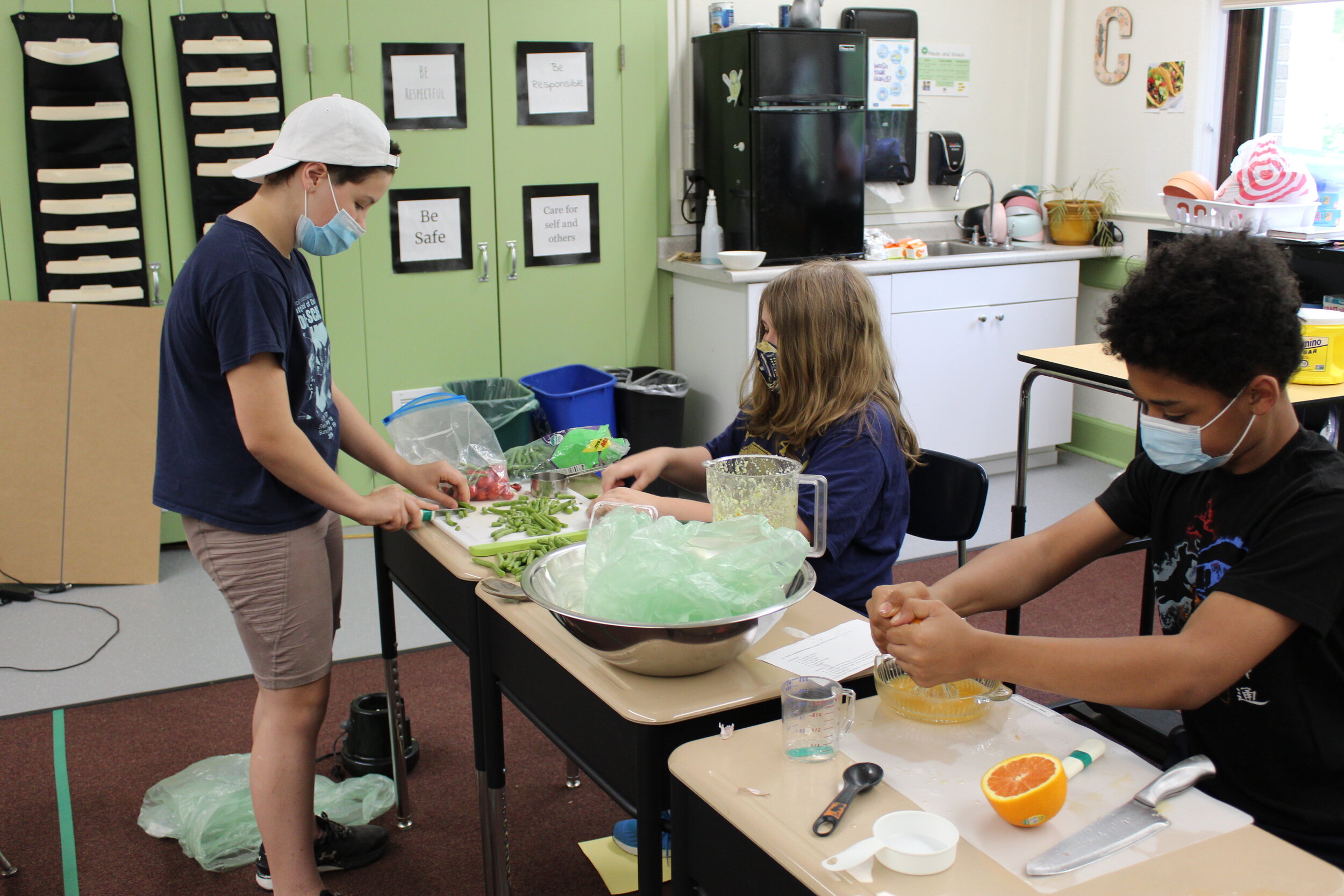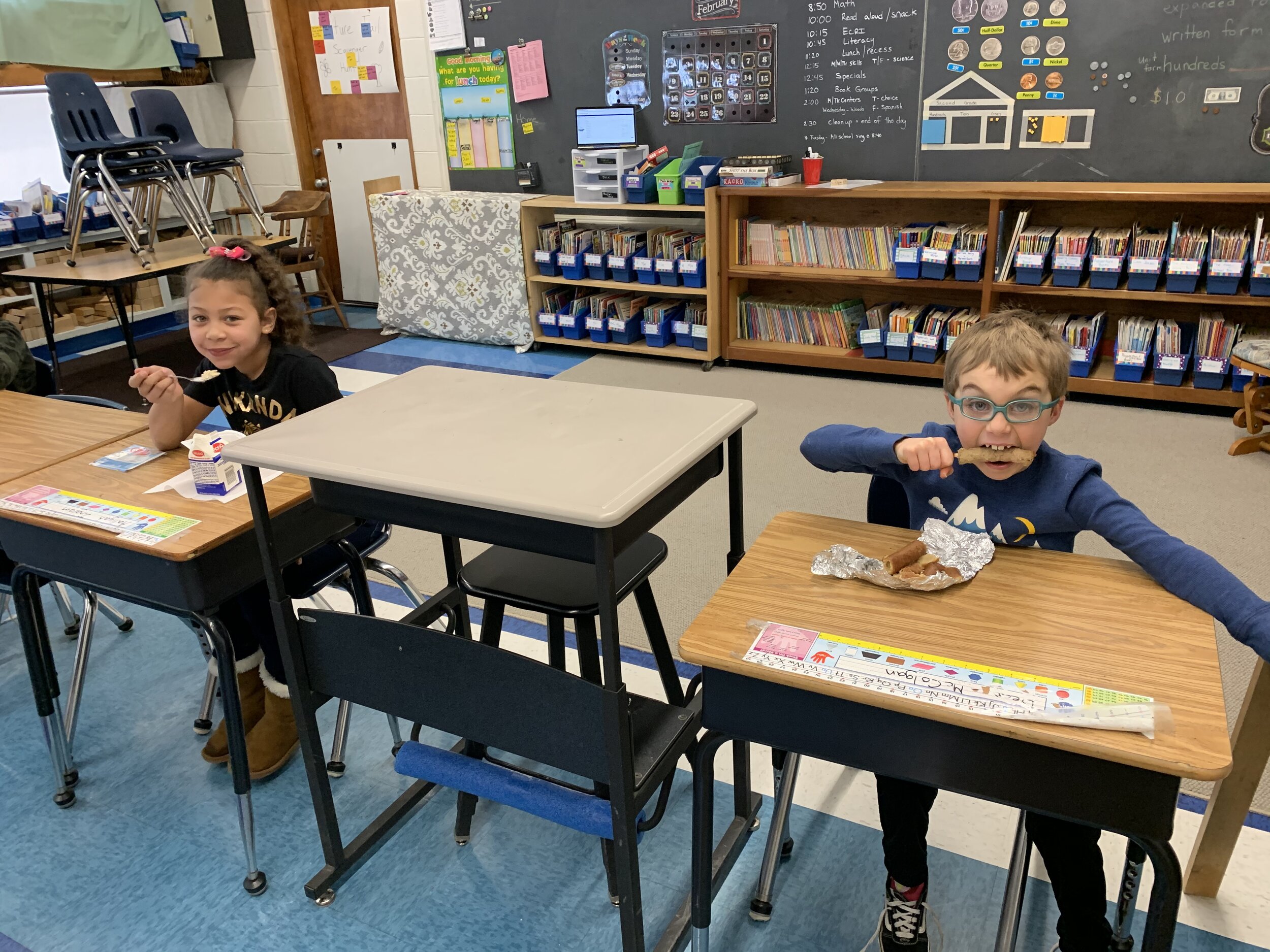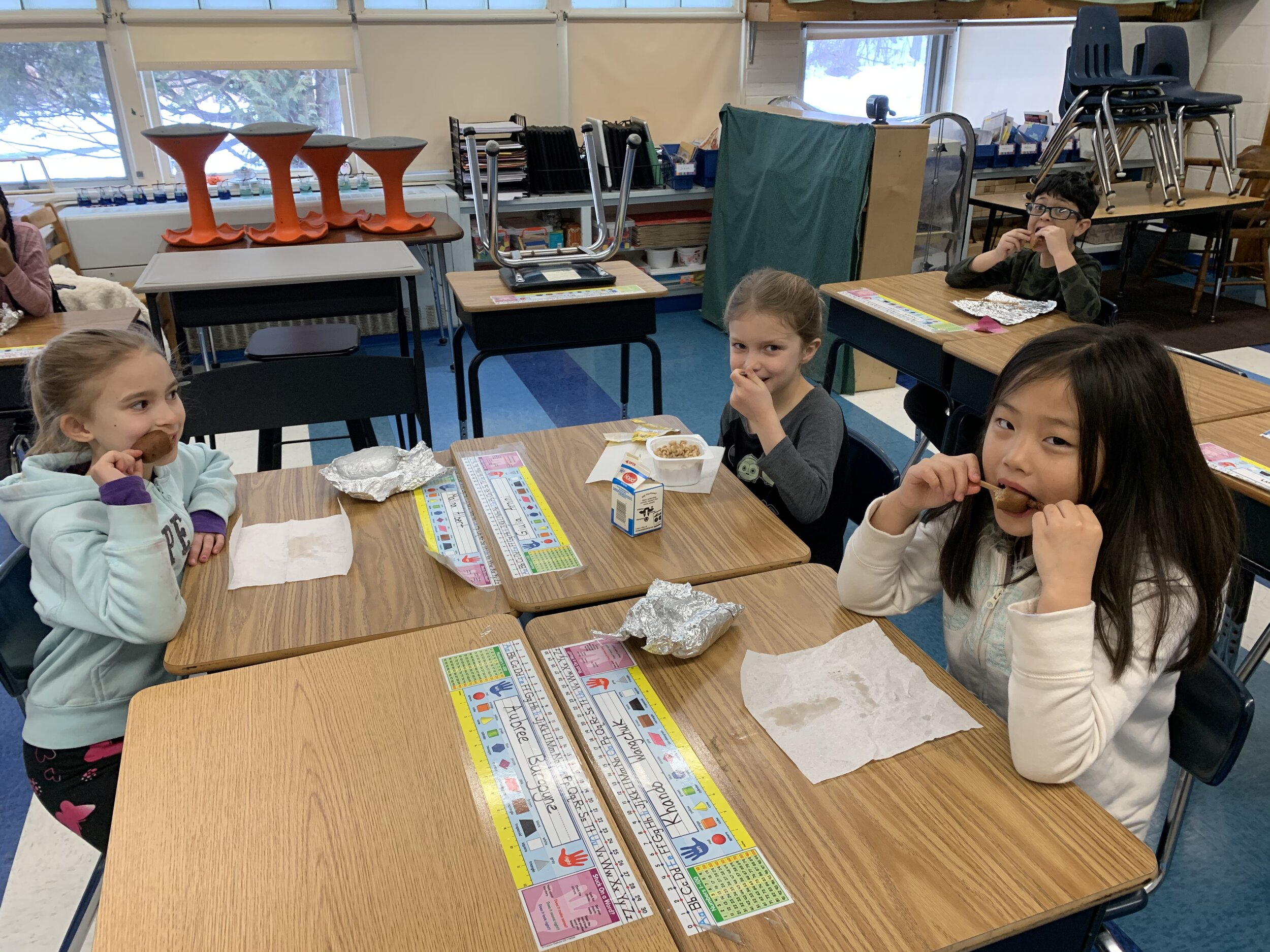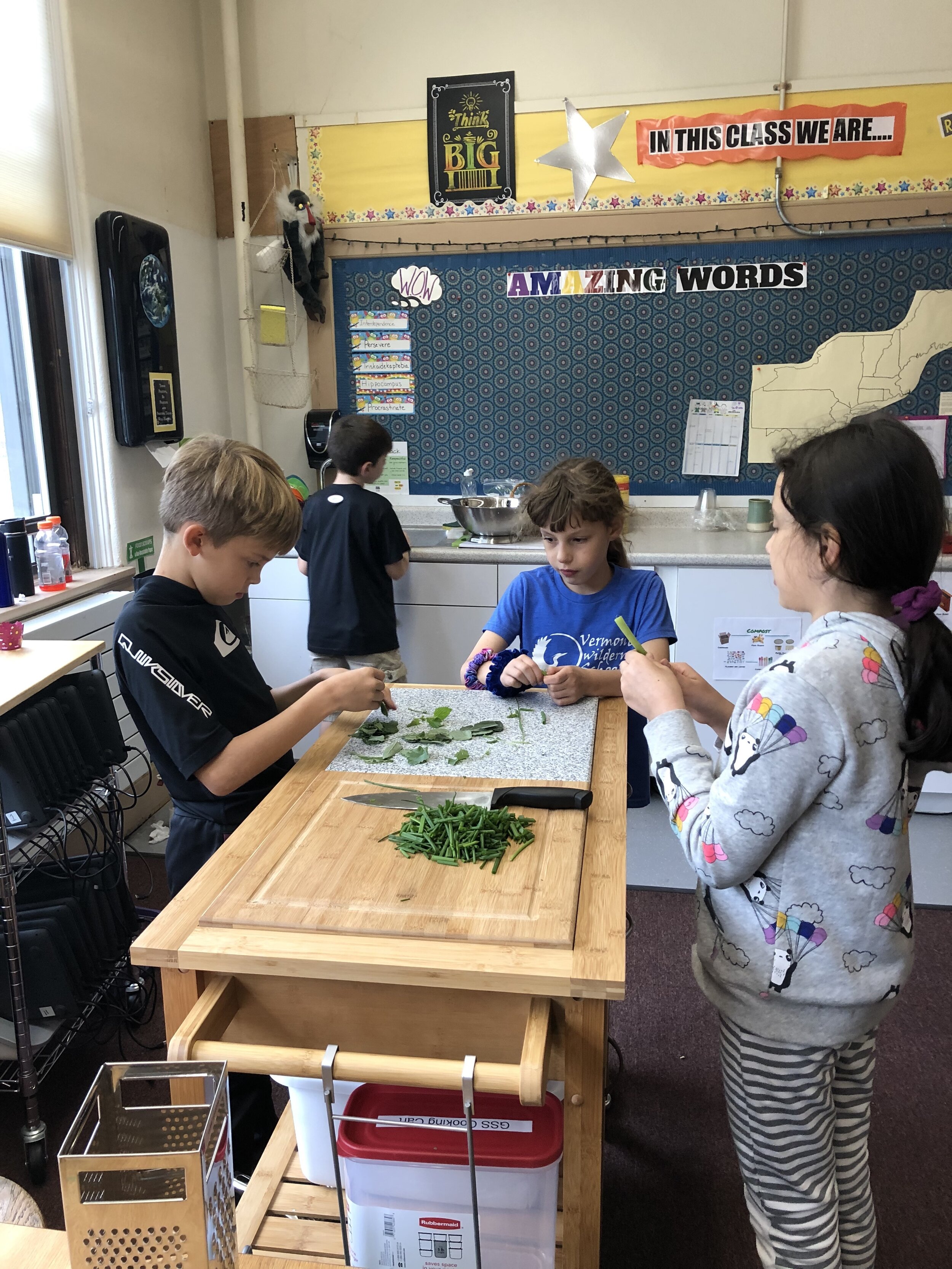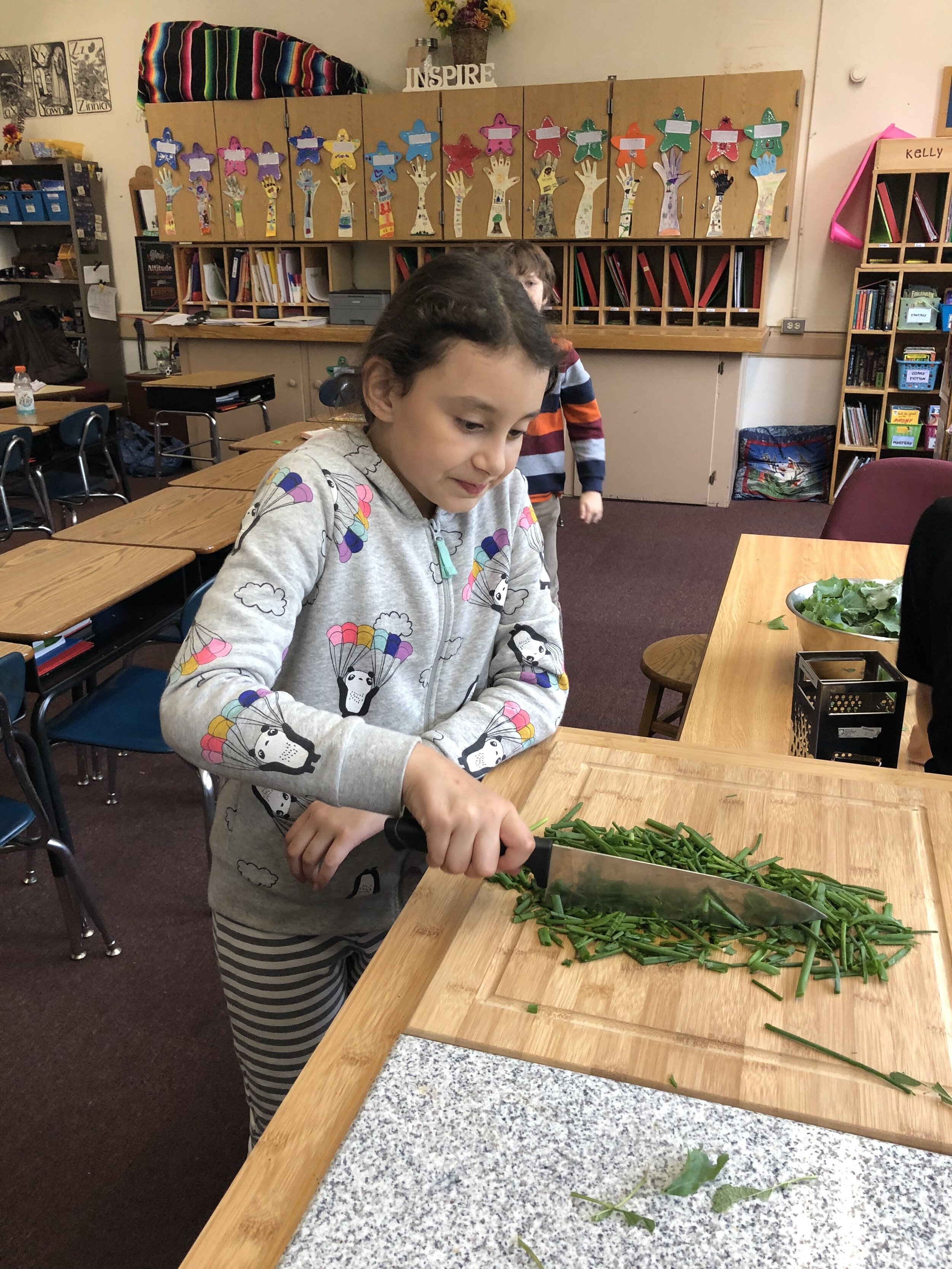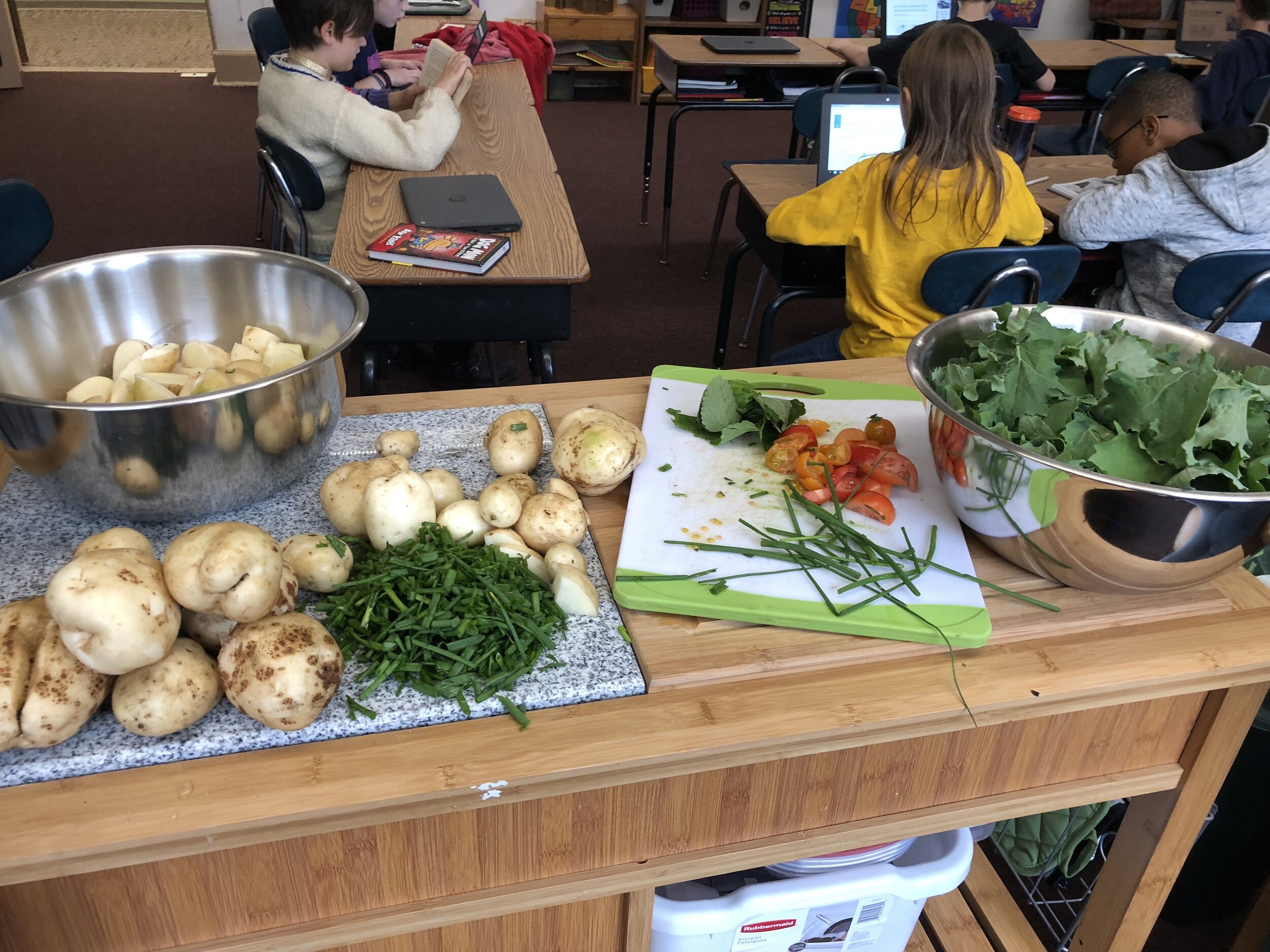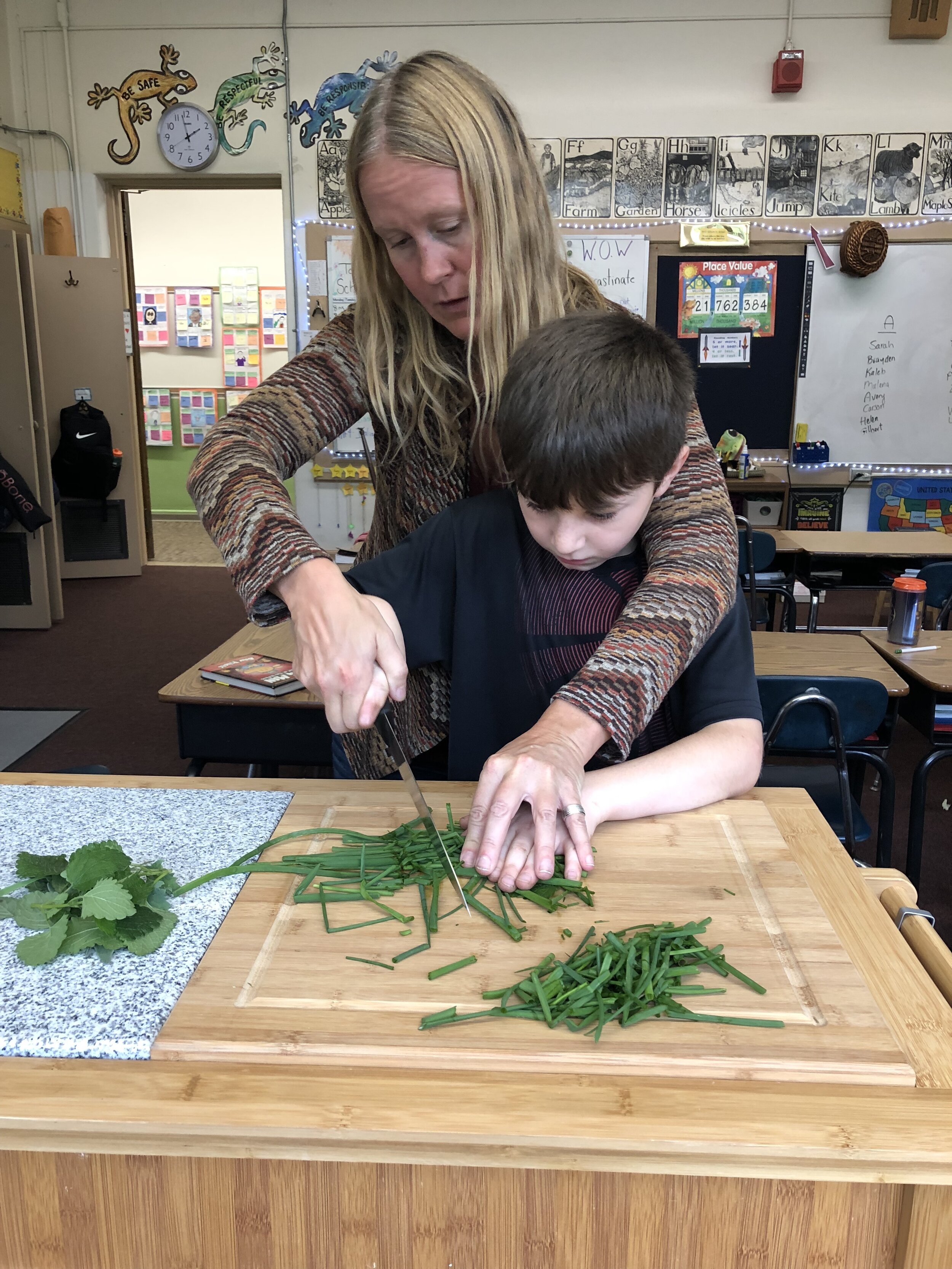Each spring at Green Street School, sixth-grade students celebrate their many years of studying French language and culture with a feast of Francophone foods. French teacher Alice Charkes, “Madame” to her students, developed a hands-on self-guided culminating project where students choose a Francophone country to study. Part of their research involves learning about the cuisine of their chosen country and preparing one dish to share with their peers.
On a Thursday morning in early June, Sheila and Laura from Food Connects assisted Madame and her students in creating this feast. Madame prepared detailed recipes and laid out ingredients and cooking utensils for students ahead of time to make sure the day went smoothly, and for the next 90 minutes, it was a lively time as excited students took charge and prepared the feast.
To start, the class ate a delicious mango and avocado salad from Seychelles and a hearty Haitian riz collé. The sides included a fried potato dish called rösti from Switzerland, and they washed it down with a refreshing Senegalese bissap drink. And, of course, who could forget dessert—sweet peanut butter and banana cookies from Vanuatu. This meal did not disappoint.
Students collectively made 11 dishes and enjoyed a feast together in just one 90 minute class period. They worked independently to measure, chop, mix, mash, boil and saute on hot plates, and bake in the oven in the teachers’ lounge, using familiar ingredients like peanut butter and potatoes and unfamiliar ingredients like tamarind, hibiscus, and cassava. There were so many small delightful moments watching students problem solve and gain confidence in themselves. The best part was enjoying the fruits of their labor at the end—all students were strongly encouraged by Madame to at least try every dish. Bravo, Madame and bon travail, sixth graders!





